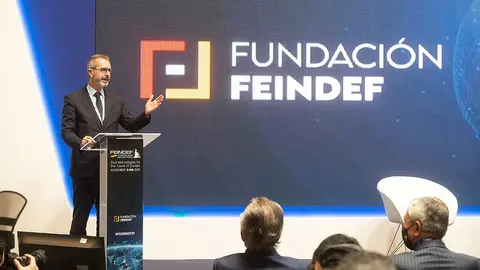The Spanish Defence Fair opens its doors with a full house and a warning to navigators from the JEMAD
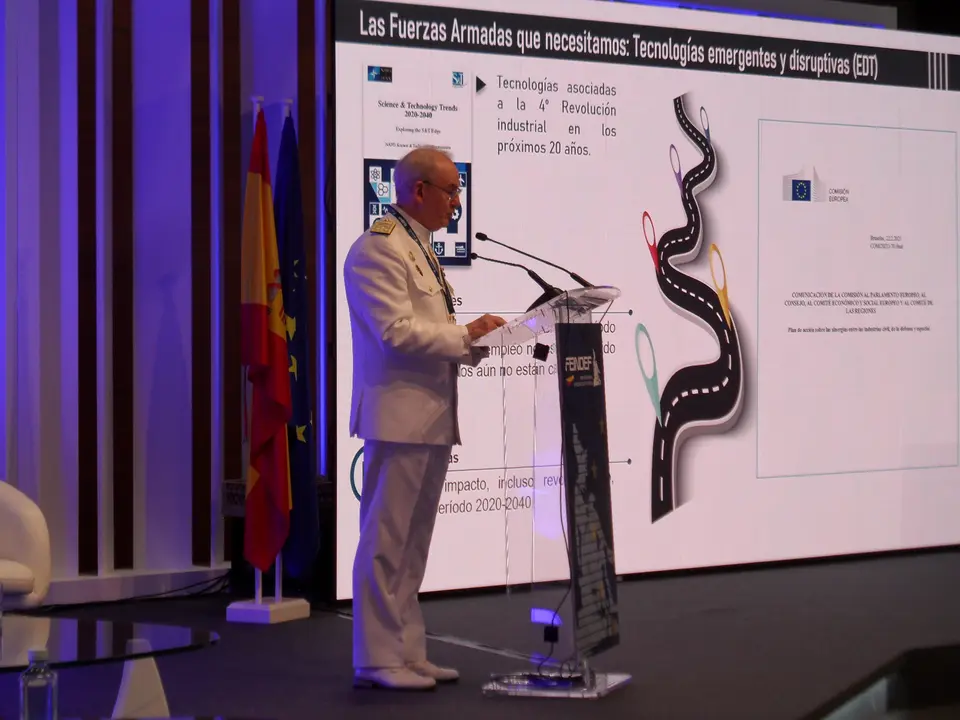
The 40,000 square metres of the two pavilions of the Madrid Trade Fair Institution (IFEMA) that house the more than 450 exhibitors at the Spanish International Defence and Security Exhibition (FEINDEF) have been filled to overflowing with professionals from the defence and security sector, both civilian and military, from all over the world.
With the backdrop of the Indra-Escribano association and under the slogan "Defence, our security", the great showcase of the third edition of FEINDEF has aroused both national and international interest. Proof of this is that the head of France's powerful General Directorate of Armaments, Emmanuel Chiva, arrived on the opening day with a large official delegation. His aim was to gain first-hand knowledge of the potential of the Spanish defence business network and the cooperation capabilities it offers.
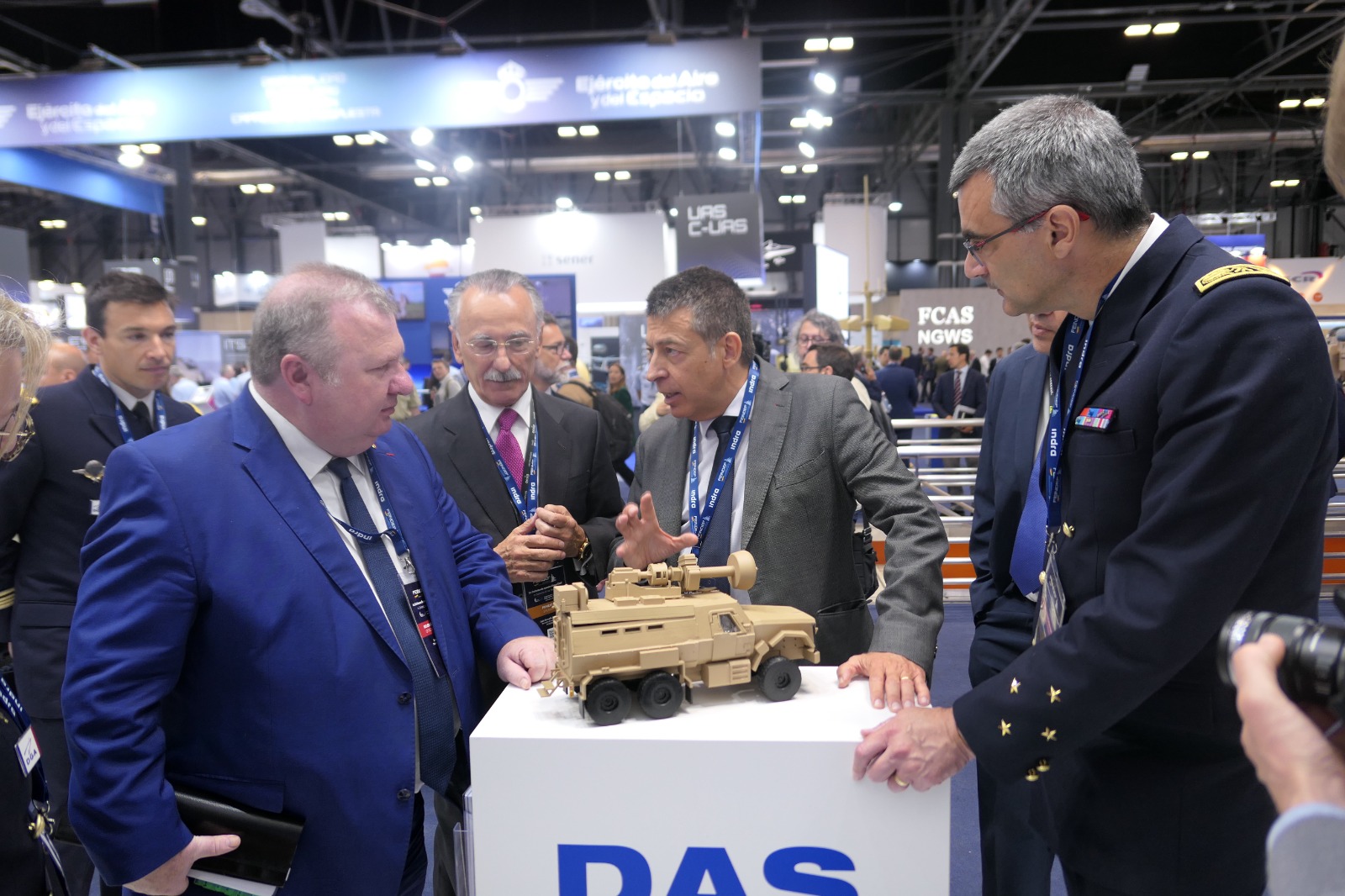
The inaugural conference of the very extensive parallel programme of conferences and round tables was given by the Chief of Defence Staff (JEMAD), Admiral Teodoro López Calderón. He spoke about the challenges facing the defence industry in the current context, one of them being the need to "improve our means of obtaining, analysing and disseminating intelligence, surveillance and reconnaissance".
The JEMAD pointed out that the investment effort that Spain has initiated to progressively increase its defence budget to 2% of GDP by 2029 has a "notable and direct impact" on economic development, on the generation of quality employment and on the effort of innovation, technology and talent.
Before an audience made up of the main directors of the Spanish defence business network, official delegations from friendly countries and senior commanders of the army and navy, Admiral Lopez Calderón emphasised that with the new investment cycle and the announced budgetary stability, "demand is assured", for which it is essential that the industry "knows first-hand what the Armed Forces need to fulfil their missions".

Avoiding fratricidal competition
The national ecosystem has the "opportunity to grow and consolidate itself as an actor of greater national and international relevance", he stressed. And he pointed out that the greatest benefit of having a "powerful" defence industry is that, by supplying the capabilities needed by the Armed Forces, "they contribute effectively to national security and defence".
The JEMAD also wanted to issue a warning. He reviewed the most incisive challenges that threaten the industrial group like a sword of Damocles and warned that, from his perspective, the main challenge facing the defence sector in the short term is "perhaps competition within the Spanish sector itself".
Diplomatically, the military chief of the Spanish Armed Forces suggested that "it could be advisable" to reach "a pact" that allows for the "coordinated development" of all companies, which must be tackled decisively "to avoid fratricidal competition and gain in efficiency, innovation and competitiveness".
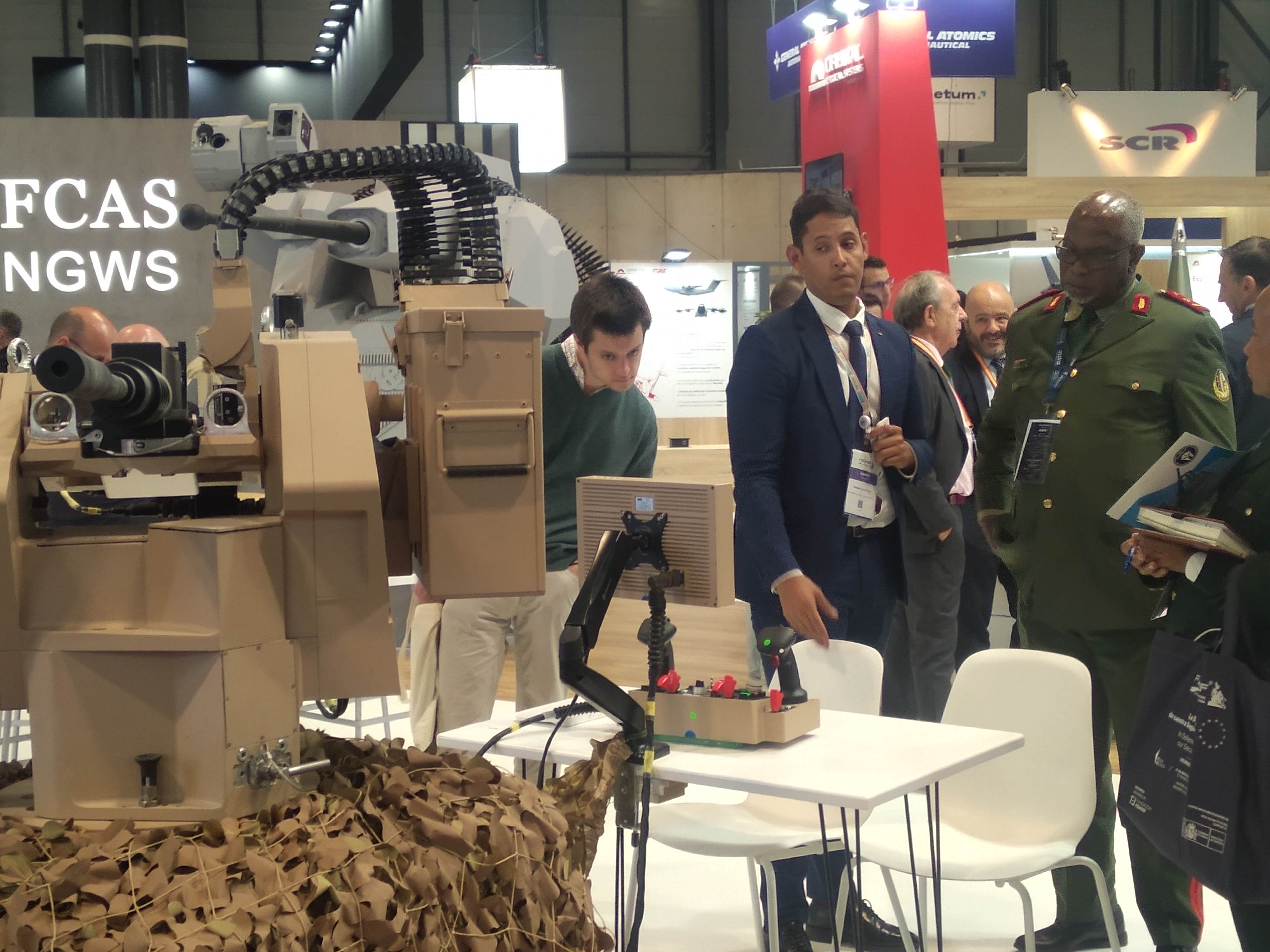
Admiral López Calderón has put his finger on the sore spot by acknowledging that the Spanish budgetary and contractual system "is not the most appropriate for the sector". He pointed out that the complex and lengthy tendering processes and the rigidity of the procedures "hinder the agility that in many cases military systems acquisitions require".
To balance his words, he also pointed out that the Spanish security and defence business ecosystem "must evolve in order to respond in a timely and competitive manner to the challenges that arise". "And it has to do so as soon as possible", because its starting position, in comparison with other European countries, "is not the best", as stated in documents of the Atlantic Alliance, he stressed.

To feed the maintenance of operations
The JEMAD is aware of the "excessive fragmentation of the Spanish industrial fabric", and in a certain sense, "also of the European one", which raises development and production costs. He stressed to the business community that "to be competitive you need industrial muscle" and to have "national champions in niches that act as a tractor for the smaller companies that make up the supply chain".
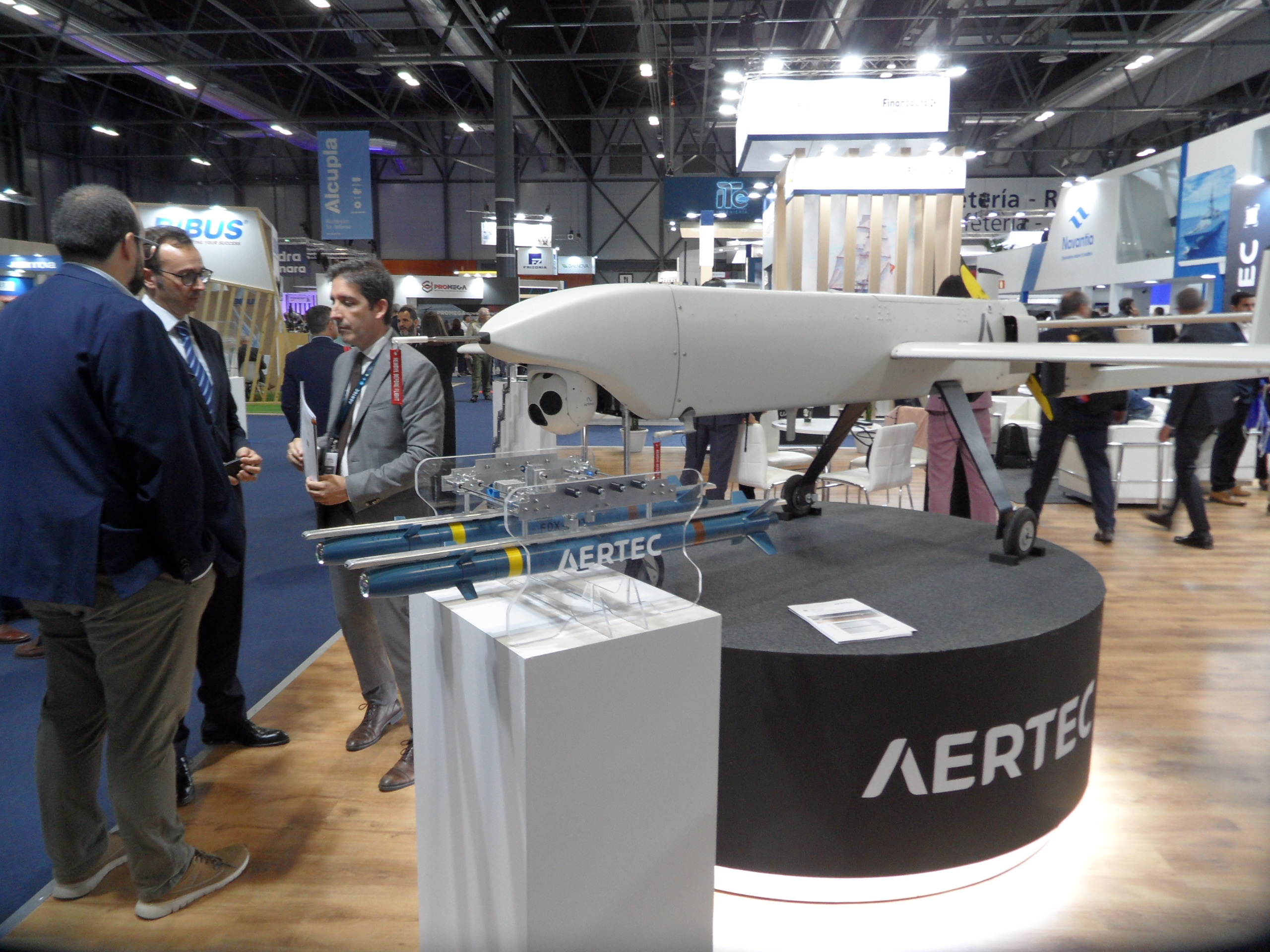
Of the lessons learned from the war in Ukraine, he highlighted the need to have a productive fabric "capable of supplying the huge quantities of military supplies required to maintain operations". And he called for "reducing design, development and experimentation times" to prevent the receipt of some systems from suffering excessive delays.
To obtain the necessary freedom of action, he called for "adequate technological and industrial independence, with greater investment in research, development and innovation, as well as the assumption of greater risks". To achieve this and to obtain dividends in the form of talent in the medium and long term, the JEMAD called for companies to get closer to the general educational community "and to the university community in particular".
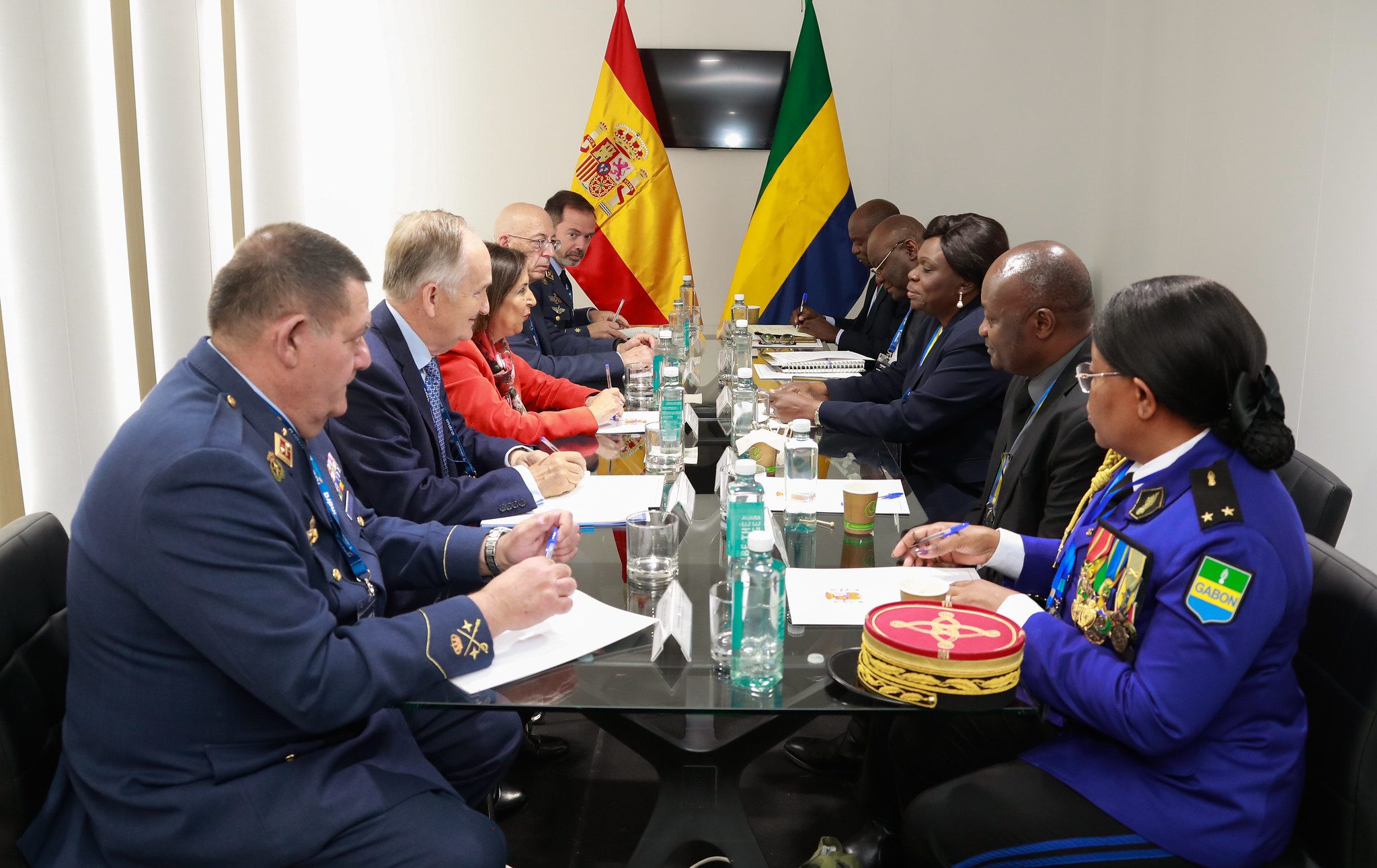
Aware that it is impossible for Spanish companies to obtain the autonomy in all areas required by national defence, Admiral Lopez Calderón asked them to focus "on the niches in which they can be competitive in the international market". "To rely solely on national demand is not a way to survive," he reminded them. But he also made it clear that, "in some cases, safeguarding national security will not allow us to renounce direct purchases abroad from Spain and even from Europe".
The inauguration ceremony was attended by the Secretary of State for Defence, Amparo Valcarce, and the Minister of Defence, Margarita Robles. After the formal ceremony, Robles met with her Gabonese counterpart, Félicité Ongouori Ngoubili, to expand bilateral cooperation, especially in the field of maritime security.
The President of the FEINDEF Foundation, the former Minister of Defence Julián García Vargas, head of the show's organisation, wished the participating companies that their presence in Madrid would allow them to "develop strategic alliances".


